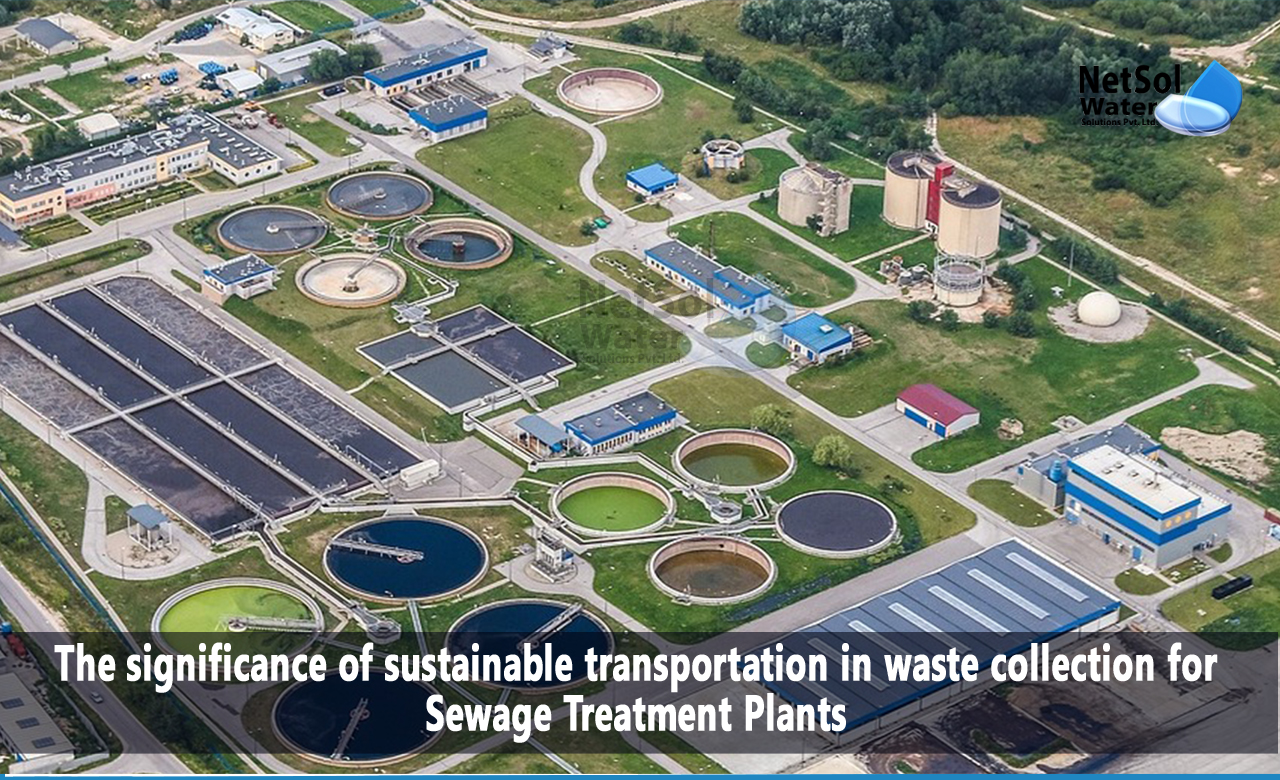STP Plant: Minimizing Carbon Footprint in Waste Collection
Sewage treatment plants (STPs) play a vital role in managing and treating wastewater to protect the environment and public health. As we strive for more sustainable practices in every aspect of our lives, it is important to consider the environmental impact of waste collection and transportation to STPs. By integrating sustainable transportation methods, we can minimize the carbon footprint associated with waste collection, reduce greenhouse gas emissions, and contribute to a cleaner and healthier environment.
In this blog, we will explore the significance of sustainable transportation in waste collection for sewage treatment plants and its benefits in reducing carbon emissions.
The Environmental Impact of Waste Collection
Waste collection processes, especially in urban areas, traditionally rely heavily on diesel-powered trucks that emit greenhouse gases (GHGs) and contribute to air pollution. These emissions have a significant environmental impact, contributing to climate change, air quality degradation, and public health issues. It is crucial to find sustainable alternatives to minimize the carbon footprint associated with waste collection and transportation.
Sustainable Transportation Solutions for Waste Collection
- Electric Vehicles (EVs): Electric waste collection vehicles are an increasingly popular sustainable transportation solution. EVs produce zero tailpipe emissions, reducing local air pollution and greenhouse gas emissions. They can be charged using renewable energy sources, further enhancing their environmental benefits.
- Hybrid Vehicles: Hybrid waste collection vehicles combine an internal combustion engine with an electric motor, providing improved fuel efficiency and reduced emissions compared to conventional diesel trucks. These vehicles can operate on electric power during low-speed operations, minimizing fuel consumption and emissions.
- Compressed Natural Gas (CNG) Vehicles: CNG vehicles utilize compressed natural gas as a cleaner-burning fuel alternative to diesel. CNG produces lower emissions of pollutants such as particulate matter, nitrogen oxides, and sulfur oxides, resulting in reduced air pollution and improved air quality.
- Biofuel-Powered Vehicles: Biofuels, derived from renewable sources such as vegetable oils, animal fats, and agricultural residues, can be used as an alternative fuel for waste collection vehicles. Biofuel-powered vehicles produce lower carbon emissions compared to traditional diesel vehicles, contributing to reduced greenhouse gas emissions.
Benefits of Sustainable Transportation in Waste Collection
- Reduced Carbon Footprint: Adopting sustainable transportation methods for waste collection can significantly reduce carbon emissions. By shifting to electric, hybrid, CNG, or biofuel-powered vehicles, we can minimize greenhouse gas emissions and combat climate change.
- Improved Air Quality: Traditional waste collection vehicles emit pollutants that contribute to poor air quality. By utilizing sustainable transportation options, we can reduce air pollution, promote cleaner air, and create healthier living environments for communities.
- Energy Efficiency: Sustainable transportation methods, such as electric and hybrid vehicles, are more energy-efficient than conventional diesel trucks. This energy efficiency translates to reduced fuel consumption and lower operational costs for waste collection services.
- Demonstrating Environmental Leadership: By implementing sustainable transportation practices in waste collection, sewage treatment plants can lead by example and inspire other industries and stakeholders to adopt eco-friendly practices. This can contribute to a broader shift towards sustainability and promote a greener future.
Collaboration for Sustainable Waste Management
Achieving sustainable waste collection and transportation requires collaboration between STPs, waste management companies, local governments, and communities. Key steps include:
- Policy Support: Governments can provide incentives and regulations to encourage the adoption of sustainable transportation methods in waste collection, such as tax incentives for purchasing electric or hybrid vehicles and setting emissions standards for waste management fleets.
- Investment in Infrastructure: Establishing charging stations for electric vehicles or refueling stations for CNG vehicles is essential for supporting the transition to sustainable transportation in waste collection.
- Public Awareness and Education: Raising awareness about the environmental benefits of sustainable waste collection and involving the community in waste management initiatives can foster support and participation.
Conclusion
Integrating sustainable transportation methods in waste collection for sewage treatment plants is a crucial step towards reducing the carbon footprint and promoting environmental sustainability. By adopting electric, hybrid, CNG, or biofuel-powered vehicles, we can minimize greenhouse gas emissions, improve air quality, and demonstrate environmental leadership. Collaborative efforts involving STPs, waste management companies, local governments, and communities are necessary to drive this sustainable transition and create a cleaner and greener future for waste management.
Netsol Water is Greater Noida-based leading water & wastewater treatment plant manufacturer. We are industry's most demanding company based on client review and work quality. We are known as best commercial RO plant manufacturers, industrial RO plant manufacturer, sewage treatment plant manufacturer, Water Softener Plant Manufacturers and effluent treatment plant manufacturers. Apart from this 24x7 customer support is our USP. Call on +91-9650608473, or write us at enquiry@netsolwater.com for any support, inquiry or product-purchase related query.



